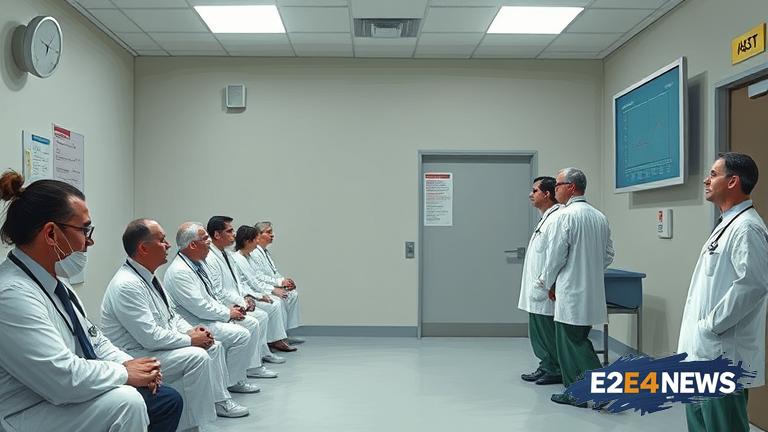The medical field has long been regarded as a bastion of science and evidence-based practice, but a disturbing trend has emerged in recent years. Ideology, rather than scientific fact, is increasingly influencing medical decisions, posing a significant threat to patient care. This phenomenon is not limited to any one particular ideology, but rather a broad range of beliefs and values that are being imposed on medical practice. As a result, medical professionals are facing pressure to conform to certain ideologies, rather than prioritizing the health and well-being of their patients. This can lead to a range of negative consequences, including delayed or foregone diagnoses, inappropriate treatments, and decreased patient outcomes. Furthermore, the infiltration of ideology into medicine can also lead to a lack of trust in the medical profession, as patients begin to question the motivations and biases of their healthcare providers. The rise of ideology in medicine is a complex issue, with multiple factors contributing to its growth. One major factor is the increasing politicization of healthcare, which has led to the manipulation of medical information for political gain. Additionally, the growing influence of social media has created an environment in which misinformation and disinformation can spread quickly, often with devastating consequences. The medical community has a responsibility to resist the influence of ideology and prioritize the health and well-being of patients. This requires a commitment to evidence-based practice, as well as a willingness to speak out against the infiltration of ideology into medicine. Medical professionals must also be aware of their own biases and take steps to mitigate them, in order to provide the best possible care for their patients. Moreover, medical schools and training programs must prioritize the teaching of critical thinking and scientific literacy, in order to equip future generations of healthcare providers with the skills they need to navigate the complex and often ideology-driven landscape of modern medicine. The consequences of failing to address the rise of ideology in medicine are severe, and could include a decline in patient outcomes, a loss of trust in the medical profession, and a erosion of the integrity of the healthcare system. It is imperative that the medical community takes immediate action to address this issue, and works to restore the integrity of medical practice. By prioritizing science and evidence-based practice, medical professionals can help to ensure that patients receive the best possible care, regardless of their background or beliefs. The future of medicine depends on it. In conclusion, the rise of ideology in medicine is a pressing issue that requires immediate attention and action. The medical community must work together to resist the influence of ideology and prioritize the health and well-being of patients. By doing so, we can help to ensure that medicine remains a science-driven field, rather than a tool for promoting ideological agendas. The health and well-being of patients depend on it. Ultimately, the integrity of the medical profession is at stake, and it is up to medical professionals to take a stand against the infiltration of ideology into medicine. The time to act is now, before the consequences of inaction become too severe to ignore. The medical community must come together to promote a culture of science and evidence-based practice, and to resist the influence of ideology in all its forms. Only by doing so can we ensure that patients receive the best possible care, and that the integrity of the medical profession is preserved. The rise of ideology in medicine is a threat to patient care, and it is up to the medical community to take action to stop it. We owe it to our patients, and to the integrity of the medical profession, to take a stand against ideology and to prioritize science and evidence-based practice. The future of medicine depends on it, and the time to act is now.
